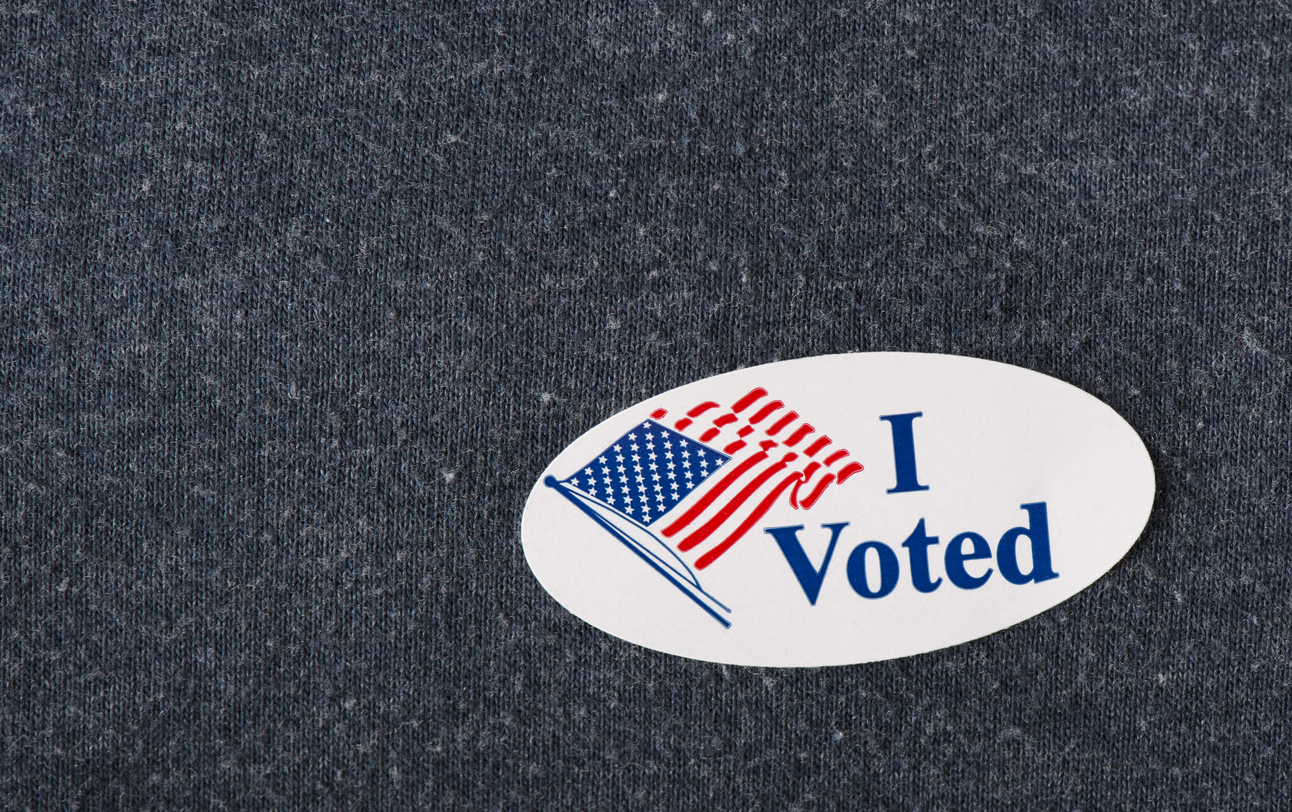Democrats have a 17-point lead in congressional preference, thanks to dislike-both-sides voters, poll finds


A free daily email with the biggest news stories of the day – and the best features from TheWeek.com
You are now subscribed
Your newsletter sign-up was successful
The idea of a "blue wave" Nov. 6 has become something of a hackneyed punch line, thanks to overuse and also the Democrats' receding odds of flipping the Senate. But a USC Dornsife/Los Angeles Times poll released Monday showed Democrats with a wavelike 17-point advantage over Republicans on which party likely voters say they'll cast their ballot for next week. The 57 percent to 40 percent result represents a 4-point shift toward Democrats from a week earlier. The RealClearPolitics average shows Democrats with a smaller 7.6-point lead on the generic congressional ballot.
The eye-catching 17-point lead "may partly reflect timing," the Los Angeles Times notes. "The final two days of the poll coincided with the arrest on Friday of a Florida man on charges of sending explosive devices to prominent Democrats and critics of President Trump, and the killing on Saturday of 11 people at a synagogue in Pittsburgh." But Republicans are pouring money into once-safe House races, and the rise in support for Democrats "stemmed from small shifts among several groups of voters," not just one segment of the electorate, the Times adds. The decisive group, however, could be the "'hold your nose and vote' brigade" that backed Trump in 2016 but "overwhelmingly favored the Democrats" this election.
In 2016, these "double negative" voters — who disliked the leaders of both parties — were mostly Republicans, but this year they are more often independent-leaning women, the Times says, according to the poll. Democrats also led Republicans by a narrower 10 points, 52 percent to 42 percent, in a separate measure of how likely voters were to actually cast their ballot this year.
The Week
Escape your echo chamber. Get the facts behind the news, plus analysis from multiple perspectives.

Sign up for The Week's Free Newsletters
From our morning news briefing to a weekly Good News Newsletter, get the best of The Week delivered directly to your inbox.
From our morning news briefing to a weekly Good News Newsletter, get the best of The Week delivered directly to your inbox.
The USC Dornsife/Los Angeles Times poll surveyed 3,453 registered voters, 2,350 of whom were deemed likely to vote and 577 who already voted, Oct. 21-27. The margin of error was ±2 percentage points.
A free daily email with the biggest news stories of the day – and the best features from TheWeek.com
Peter has worked as a news and culture writer and editor at The Week since the site's launch in 2008. He covers politics, world affairs, religion and cultural currents. His journalism career began as a copy editor at a financial newswire and has included editorial positions at The New York Times Magazine, Facts on File, and Oregon State University.
-
 Are AI bots conspiring against us?
Are AI bots conspiring against us?Talking Point Moltbook, the AI social network where humans are banned, may be the tip of the iceberg
-
 5 calamitous cartoons about the Washington Post layoffs
5 calamitous cartoons about the Washington Post layoffsCartoons Artists take on a new chapter in journalism, democracy in darkness, and more
-
 Political cartoons for February 14
Political cartoons for February 14Cartoons Saturday's political cartoons include a Valentine's grift, Hillary on the hook, and more
-
 Judge blocks Hegseth from punishing Kelly over video
Judge blocks Hegseth from punishing Kelly over videoSpeed Read Defense Secretary Pete Hegseth pushed for the senator to be demoted over a video in which he reminds military officials they should refuse illegal orders
-
 Trump’s EPA kills legal basis for federal climate policy
Trump’s EPA kills legal basis for federal climate policySpeed Read The government’s authority to regulate several planet-warming pollutants has been repealed
-
 House votes to end Trump’s Canada tariffs
House votes to end Trump’s Canada tariffsSpeed Read Six Republicans joined with Democrats to repeal the president’s tariffs
-
 Bondi, Democrats clash over Epstein in hearing
Bondi, Democrats clash over Epstein in hearingSpeed Read Attorney General Pam Bondi ignored survivors of convicted sex offender Jeffrey Epstein and demanded that Democrats apologize to Trump
-
 El Paso airspace closure tied to FAA-Pentagon standoff
El Paso airspace closure tied to FAA-Pentagon standoffSpeed Read The closure in the Texas border city stemmed from disagreements between the Federal Aviation Administration and Pentagon officials over drone-related tests
-
 Judge blocks Trump suit for Michigan voter rolls
Judge blocks Trump suit for Michigan voter rollsSpeed Read A Trump-appointed federal judge rejected the administration’s demand for voters’ personal data
-
 US to send 200 troops to Nigeria to train army
US to send 200 troops to Nigeria to train armySpeed Read Trump has accused the West African government of failing to protect Christians from terrorist attacks
-
 Grand jury rejects charging 6 Democrats for ‘orders’ video
Grand jury rejects charging 6 Democrats for ‘orders’ videoSpeed Read The jury refused to indict Democratic lawmakers for a video in which they urged military members to resist illegal orders
